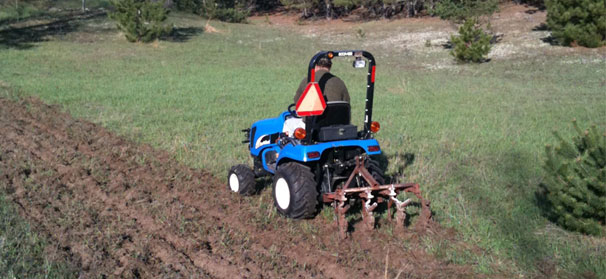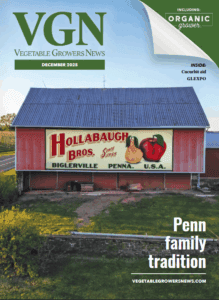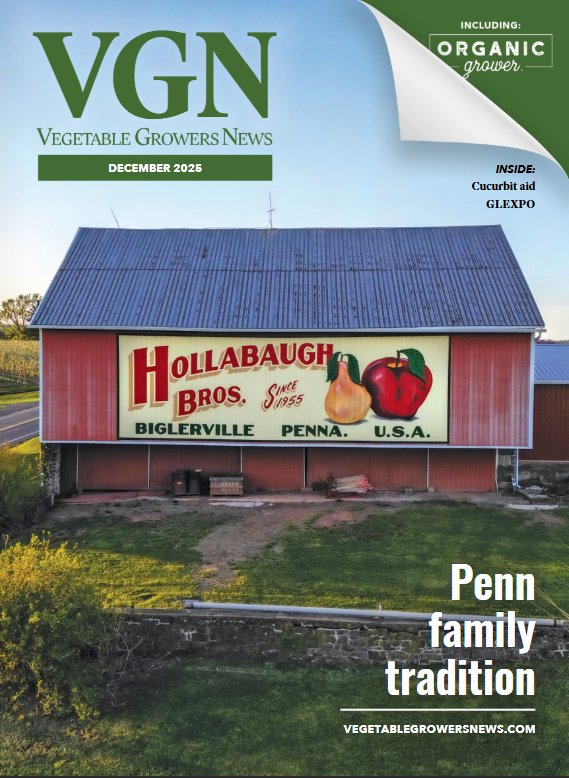
Dec 16, 2011Father, son carry on Massachusetts family heritage
When Mario Marini talks about farming, he talks about his heritage – and about the farm’s future.
“My parents worked hard to give me what I have, and I’m thankful to my son (Michael) because the farm will be allowed to continue,” Marini said.
The Marinis – along with three other families – purchased the original property in Ipswich, Mass., in 1928 when they moved to the United States from Italy. After the other families moved to other farm land, the Marinis became sole owners in 1978. Michael is the third generation to farm the land.
Today, Mario and Michael farm 200 acres, 30 of which are on the home farm. The rest is leased land. They grow a variety of fresh fruits and vegetables, and their top seller is sweet corn.
“I’m trying to do too much,” Marini said. “With 200 acres, you gotta have priorities. Corn first, tomatoes second, the rest comes next.”
The farm
Marini Farm also has a few greenhouses, which allow them to offer tomatoes from June through October.
“He has tomatoes during strawberries, which is a big deal,” said Jim Mussoni of Mussoni IPM.
If the deer had their way, Marini wouldn’t have tomatoes at all.
“The deer are so bad they even go after tomatoes,” Mussoni said.
In the area of Marini Farm, the deer population is about 100 per square mile. A healthy population, Mussoni said, is considered 40 deer per square mile.
The Marinis have tried fencing and other tactics to keep the deer out, but – like other farmers in the area – they’re not having much luck keeping their crops safe.
Deer aren’t the only issue the Marinis have to deal with. Other big issues, Mussoni said, include grubs, two-spotted mites, black root rot and weeds. Plus, the Marini farm is very stony.
To deal with the stony soil, the farm is working on soil building and composting. The compost used to build topsoil is made of gelatin residue they get from Kodak, plus horse bedding. It is left to sit for months in order to break down and become useful compost.
The market
Much of their crop is sold through their on-farm market, which is open June through October and also features locally raised meat and dairy products, fresh bakery items and other specialty food products.
A popular attraction at Marini Farm is the 8-acre corn maze, which features an apple cannon that allows people to shoot apples through a target. Check out the farm’s blog dedicated to the corn maze and other fall activities here.
The farm also offers a Community Supported Agriculture program.
“We were concerned about losing money to CSAs, so this is the first year we’ve done a CSA,” Marini said.
The Marinis offer two CSA shares: large and small. According to the farm’s website, a large share feeds four people comfortably and averages about $30 per week. The small serves two and works out to about $17 per week.
When winter hits, the farm stand closes and becomes “Christmas on the Hill.” During this time, they offer customers more than 2,000 pre-cut Christmas trees to choose from, wreaths, greenery and gifts. Plus, the farm has several winter activities, including “SL-HAY” rides, Santa visits and wreath-making parties.
Latest News
see all news »Current Issue

Veg Connections: strategies to protect cucurbits from insect-transmitted diseases
GLEXPO: Smart strategies for healthier crops
Hollabaugh’s Pennsylvania vegetable, farm market success
Organic Grower: Mechanical advances help target weeds in organic vegetable farm setting
Farm Market & Agritourism: Aligning farm market products with consumer values
Ag Labor Review: There is an abundance of low-hanging fruit.
see all current issue »














